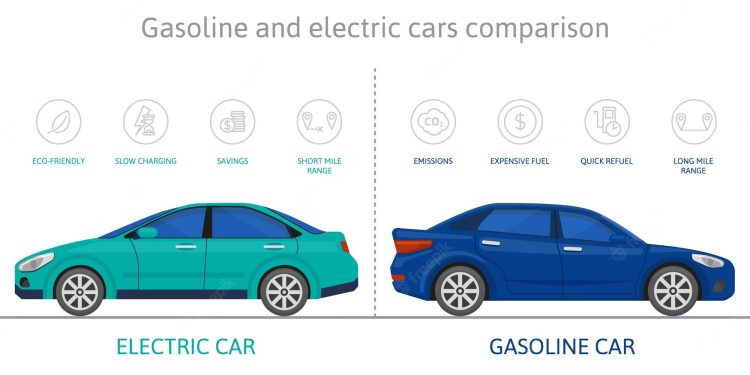The Pros and Cons of Electric Cars: Are They Really the Future?

Electric cars are no longer a niche. From the beginning of 2022, their sales have grown 55%, and they’re now one of the 10 best-selling car models in America. The number of electric cars on the road has tripled in just two years. But why? The reasons are manifold. Firstly, customers are becoming more aware of their carbon emissions and how they affect the environment. Secondly, petrol prices keep going up while electric cars become cheaper to buy as well as to run. Thirdly, cities become more polluted and congested with traffic jams – leaving many prospective buyers wanting an eco-friendly alternative that’s also cheap to own and drive. These below pros and cons by Stebbings will dive deeper into why electric cars have become so popular in just a few years…
Pro: No Petroleum, Fewer Emissions
Electric cars don’t use oil at all. This means they emit no greenhouse gases or carbon emissions that might contribute to climate change. In fact, they produce 70% less CO2 than conventional cars. There are no tailpipe emissions either, but electric car owners may still emit CO2 indirectly – through the electricity they use to charge their cars. But whether or not a grid is powered by renewable or fossil fuels, it releases CO2 as a by-product. The amount of CO2 emitted depends on the source of electricity and its efficiency – which varies by country. In the U.S., the average emission rate is about 5.6 pounds CO2 per kilowatt-hour. In Britain, it’s about 7.2 pounds CO2 per kWh. In Germany, it’s about 9.4 pounds CO2 per kWh.
Pro: Environmentally Friendly
Besides emitting no CO2, electric cars are largely non-polluting as well. They don’t emit any particulates, hydrocarbons, nor nitrogen oxides. What’s more, many modern electric cars can be charged using renewable energy sources like solar power or wind power. This means they’re not contributing to the pollution of the atmosphere. Charging your electric car at home or at the office means your own emissions are minimal. Public charging stations, however, do not necessarily run on clean energy. You might want to check where they get their energy from and how much CO2 they emit.
Pro: Cheaper to Run and Own in the long run
Electric cars are cheaper to run in the long run. You may have to pay a hefty upfront cost to buy an electric car, but once you’ve made that investment, you don’t have to worry about rising fuel prices. Electric cars cost between £0.02 and £0.05 per mile. Even if you charge them for free, it’s still cheaper than owning and operating a gas-powered car. The average cost of petrol per year is between £1,000 and £3,000 per year. You may also save on maintenance. Electric car owners don’t have to worry about frequent oil changes and expensive repairs. They also don’t have to replace their tires as often.
Con: Limited Driving Range Per Charge
The driving range of an electric car per charge depends on its battery size. Newer models have more capacity, but even these can only travel up to about 150 miles per charge. Still, charging your electric car is easy. You can use an at-home charging station, a public charging station, or an on-the-go charging station. These last two options are the most convenient, especially for long-distance travellers. Depending on the kind of charging station you use, you can charge your electric car in as little as 15 minutes. In fact, most public charging stations can charge your electric car in as little as 30 minutes. It’s also important to know your car’s charging capacity as this will help you know when you are expected to finish charging.
Con: Installing a Fast Charging Station is Expensive
If you want to open a public charging station, you’ll probably have to invest in a fast charging station. These can easily cost you between £18,000 and £60,000. But they might be worth it. You can charge multiple electric cars at the same time, and people can charge their cars while they’re at work or running errands. You can make money from your charging station, too. You can charge drivers a small fee for charging their cars. Or you can accept advertising from other businesses.
Con: They’re Still Quite Rare and Not Everyone Can Afford Them
Even though electric cars have become more popular, they’re still a niche market. While the number of electric car sales has drastically increased, they still only make up a small portion of the car market. People who own electric cars represent just 1% of the population in the United States. What’s more, the majority of electric car owners are well-educated, wealthy people who own Tesla’s or other high-end electric cars. Electric cars are still more expensive than gas-powered cars. Even though they’re cheaper to run and maintain, they’re more expensive to buy. On average, they cost £50,000, while a regular car costs around £25,000.
Conclusion
These pros and cons explain why electric cars have become so popular in just a few years. While they’re still a niche market, it’s easy to see why people are buying them. They offer cleaner, more sustainable transportation with fewer emissions and reduced noise pollution. If you’re thinking about buying a brand new electric car, as opposed to a used car from a dealership, be sure to look at all the pros and cons. Finding out the right choice will be much easier.










